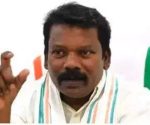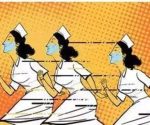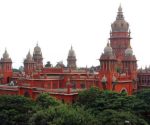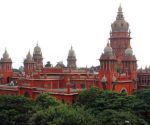Gun violence claimed her father’s life, now she wants to change the law | Chennai News – The Times of India

The US govt is a reactive creature, almost never proactive, says Uma Loganathan, who, for the past 15 years, engaged with American lawmakers, pushing for stricter legislation on gun ownership and firearms safety. The biomedical engineer turned independent consultant, based in Virginia, is the daughter of G V Loganathan, a Professor of Civil and Environmental Engineering, who was one of the 32 victims of the 2007 Virginia Tech massacre, the deadliest school shooting in US history. Loganathan was a native of Gobichettipalayam, Erode, and an alumnus of PSG College of Technology, Coimbatore, and IIT Kanpur. In an interview with Bijoy Bharathan, Uma talks about the uphill battle involving gun control in the US. Excerpts:
How did life change after the shootout at your father’s university?
It was outside of the realm of anything we could ever imagine. Mass shootings like those were rare. Blacksburg, where I grew up, is a college town with a low crime rate. There was a lot of trust within the community and the university. Something like this was devastating, not just for our family, but for our community too. We were lucky to have its support. I was at a different university two hours from home, and my sister was in middle school. My mother, a homemaker, suddenly needed to get a job. We simply put one foot in front of the other because, really, what else do you do? My sister and I focused on our studies, while my mother began working at a microbiology lab.
Can you describe your transition from a life in science to politics?
After my father’s death, I had so many questions. How could this happen in our college town? What led to it? And how do we ensure it doesn’t happen again? The university and the state conducted probes and issued reports, but reading them led to more questions — about the investigative process, the workings of higher education, and the govt. I comprehended exactly how involved — how influential — govt is in our everyday lives. Not just the kind of govt we have but, more importantly, the kind of govt we choose to live with. I started working with advocacy groups before working on campaigns and eventually, within the govt itself on public health policy. I was able to do that because of my mother’s support.
How influential are civil society groups in transforming gun laws in the US?
They are influential. When I was first advocating for gun safety laws around 2008, the issue was hardly a priority for the state govt or the national govt. By the 2016 election, gun violence was a priority issue in a presidential race, and the endorsement of Everytown for Gun Safety (a prominent gun safety advocacy group) was proudly shared by the presidential candidate. That’s a huge change in nine years. There are so many issues competing for a presidential candidate’s attention, such as healthcare, education, the economy, and jobs. For gun violence to become a part of a candidate’s priority issues portfolio — and then to continue to be part of a party’s priority legislative portfolio — is tremendous. Such a change wouldn’t have occurred without the hard work of gun violence survivors, advocacy groups, and citizens.
Is there light at the end of the tunnel on gun control?
The Second Amendment of our constitution protects the right to carry a gun. In 2022, the US Congress passed the first major gun safety legislation in almost 30 years. We’re also seeing more state govts passing key gun safety measures into law when their legislatures might not have done so 10 years ago. Although the constitution is meant to be a living document that can change through amendments as needed, many judges, representatives, and constituents hold a private view that the constitution is sacred and should not be changed. This transforms the conversation from one about gun ownership to one about rights and freedoms. This doesn’t mean giving up, though — it just means we need to shift our focus to where we can make incremental gains.
WHAT A MASSACRE STOLE
On April 16, 2007, Seung-Hui Cho, a South Korean undergraduate student at Virginia Tech, went on a shooting spree on the campus at Blacksburg, Virginia. He killed 32 people and wounded 17 with two semi-automatic pistols before shooting himself. One of those killed was Professor G V Loganathan, a much-loved faculty member who published more than 150 peer-reviewed papers in major water resources journals globally. His research findings were used extensively by municipal water supply professionals around the world. He was a family man, says daughter Uma Loganathan, who loved watching MGR movies and listening to Tamil songs. He would visit Tamil Nadu along with his family every four years (something which wasn’t always possible due to his work) and religiously devour Ponniyin Selvan once a year during the summer. Today marks the 18th anniversary of his passing.
MAJOR SCHOOL SHOOTINGS SINCE 2007
Dec 14, 2012 | Sandy Hook Elementary School, Newtown, Connecticut; Adam Lanza, 20, killed 20 first-grade children aged six and seven, along with six adults, including four teachers, the principal, and the school psychologist. He later killed his mother.
Feb 14, 2018 | Parkland High School, Parkland, Florida; Nikolas Cruz, a 19-year-old former student, killed 17 people, while 18 others were injured. The suspect blended in with the crowd of fleeing students and was arrested in a residential area.
May 4, 2022 | Robb Elementary School, Uvalde, Texas; Salvador Ramos, 18, killed 19 students between the ages of 9 and 11, and two teachers. The assailant also shot and wounded his grandmother.
















